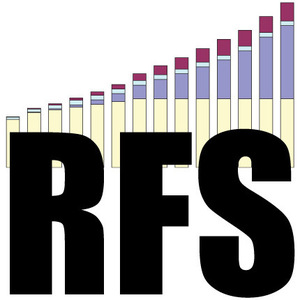NBB shows US EPA higher 2020 biodiesel volumes are achievable

August 17, 2018
BY The National Biodiesel Board
The National Biodiesel Board filed comments on the proposed Renewable Fuel Standard for 2019 and biomass-based diesel volume for 2020. NBB’s comments respectfully urge the U.S. EPA in the final rule to increase the volumes in both categories and to fully account for small refinery exemptions.
In a letter accompanying the comments, Kurt Kovarik, vice president of federal affairs for NBB, writes, “The biomass-based diesel industry has proven year after year that it can deliver increasing volumes. We appreciate the agency’s recognition of that fact and welcome the signal of growth in the proposed rule. NBB asks that you fully support the industry’s growth by setting the biomass-based diesel volume for 2020 at 2.8 billion gallons and increasing the 2019 advanced biofuel volume to allow growth.”
NBB’s comments demonstrate that the increased biomass-based diesel volume is achievable with available feedstocks. For instance:
Advertisement
Advertisement
-USDA World Agricultural Supply and Demand Estimates in August forecast soybean ending stocks for the 2018 marketing year at 785 million bushels, an increase of 400 million bushels from the June forecast. This increase of projected soybean stocks represents more than 600 million gallons of potential biodiesel production.
-LMC International estimates that distillers corn oil (DCO) output will exceed 4.4 billion pounds in 2018. NBB estimates that DCO supplies not currently utilized for biodiesel production represents more than 130 million gallons of additional potential production.
-LMC International also projects that the global waste oil supply will grow from 29 million metric tons in 2017 to 31.9 million metric tons in 2020, which would be enough to create 9.6 billion gallons of biodiesel.
Advertisement
Advertisement
-The National Renderers Association projects rendered fat supplies (animal fats and used cooking oil) to increase by 14 percent over the next decade.
“Most importantly, once EPA has set the annual volumes, it must ensure they are met,” Kovarik continued. “The volumes EPA ultimately finalizes will be meaningless if the agency continues to retroactively reduce them through small refinery exemptions. The certainty that biodiesel producers need includes an assurance from EPA that the volumes it establishes will be met.”
Made from an increasingly diverse mix of resources such as recycled cooking oil, soybean oil and animal fats, biodiesel is a renewable, clean-burning diesel replacement that can be used in existing diesel engines without modification. It is the nation’s first domestically produced, commercially available advanced biofuel. NBB is the U.S. trade association representing the entire biodiesel value chain, including producers, feedstock suppliers, and fuel distributors, as well as the U.S. renewable diesel industry.
Related Stories
The U.S. House of Representatives early on May 22 narrowly passed a reconciliation bill that includes provisions updating and extending the 45Z clean fuel production tax credit. The bill, H.R. 1, will now be considered by the U.S. Senate.
U.S. EPA Administrator Lee Zeldin on May 21 stressed the agency is working “as fast as humanly possible” to finalize a rulemaking setting 2026 RFS RVOs during a hearing held by the U.S. Senate Committee on Environment and Public Works.
Clean Fuels Alliance America on May 22 delivered a letter to U.S. EPA Administrator Lee Zeldin, urging him to set the 2026 RFS biomass-based diesel volume at no less than 5.25 billion gallons and allow continued growth in the 2027 volumes.
A group of 28 House members on May 16 sent a letter to President Donald Trump urging his administration to adopt timely, robust Renewable Fuel Standard renewable volume obligations (RVOs) for 2026 and beyond.
A bill to formally adopt a revenue certainty mechanism to support the production of SAF was introduced in the U.K. Parliament on May 14. The proposed scheme is in the form of a guaranteed strike price.
Upcoming Events










